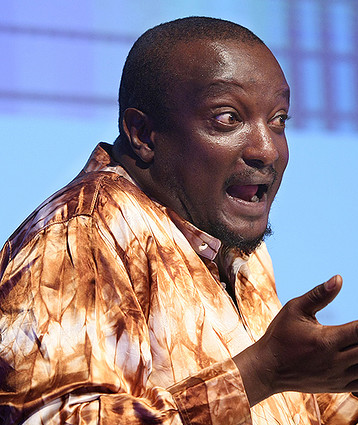Like a child who's forgotten that his book report is due on the way to school, I've attempted last minute to synthesize the contents of four and a half vaguely thematic blog posts into something fibrous and whole. I did it in fourth grade with a box of toothpicks and a juice-box in the back of Mrs. Beinlick's class and I can do it again. Especially if you consider that the toothpicks were more or less a diversion from the fact that I hadn't read Number the Stars. Even I was surprised at how long it took to pick them all up. On the one hand they're long... but thin.
Anyway, that something fibrous was the subject of a recent article in Slate by Tanner Colby in which Michael Chabon's latest is apportioned into pros and cons in terms of how and why and when it reflects race and racial tensions in America, and where perspectives on the issue (and Chabon's handling of it) abound. The article is full of great insights and quotes I'd like to paraphrase and pass of as my own but in the interest of time I'll set my sights on one in particular by the author in question, which I'm tempted to say "says it all" in response to my question of what we can affirm about identity by foregoing our own:
"I understand it politically. I understand the historical context, completely. Artistically, I don’t understand it at all. Because if I can’t write from the point of view of a black woman nurse-midwife, then I can’t write from anybody’s point of view. I use my imagination to imagine myself living lives I don’t live and being people who I’m not.”
The article goes on to say that "like a toddler learning how to walk, [Chabon] is" perhaps "to be applauded just for getting in a few good steps before the inevitable stumble," which, if memory serves, is meant to be a kind of compliment. But if he, Chabon, "stumbles" in his effort to write race, at least he does so blindly. I know what you're thinking: "Isn't that part of the problem? Isn't ignorance a gateway drug to racism and cultural ownership?" Indeed, as Colby writes, "If you convince white people they're not qualified to tackle race... they will be more than happy to ignore it." Or address it under a lens of the most dehumanizing stereotypes.
But Chabon, unlike, say, Ann Coulter, would I think agree that "race remains essential to our understanding of social reality," as W. J. T. Mitchell contends in his book Seeing Through Race. Rather, by ignoring himself and his own preconceptions, insofar as is possible, Chabon has written "black" characters as unabashedly and thoroughly as any other. Like a labyrinth without walls, Archy Stallings and Gwen Shanks are not just thought about but through, in effect creating characters that are un-characterizable.
Binyavanga Wainaina, one could argue, or just say, is too a character of sorts in One Day I Will Write About This Place, his memoir about growing up in Kenya, unconstrained by western ideas of what he or life in Africa or writing about either should be like. Wainaina's book, in fact, is about learning to become a writer, first and foremost, as opposed to an example or account of how that's done outside of the U.S., most notably depicted in the writing itself which, unlike that in Zadie Smith's NW, is unself-conscious or, it seems, inhibited by the thousands of books we come to learn Wainaina spent his childhood and young adulthood, quite literally, absorbed in, while retaining their influence remarkably in terms of not just aping speech, but speaking for one's self, producing language that's poetic in ways poetry itself no longer strives for.
I had it in mind to end it there, but then as I was reading press on J.K. Rowling's latest, I came across a quote from her that far from wrapping up this conversation with myself on writing and identity and how the two confuse or help support each other, puts the question in a context that makes clear, or at least visible the matter of why writing or shouting or singing's a good reason to keep those kinds of conversations going.
"One of the great problems for me is that the poor ... are so often discussed just as this large, shapeless mass. You lose your individuality a huge amount when you have no money, and I certainly had that experience," she says. "You become part of a problem. You're someone who stands in a line to get money; it's not where you want to be, and you become very voiceless."
 |
| Admittedly not crap, just way over my head |



No comments:
Post a Comment